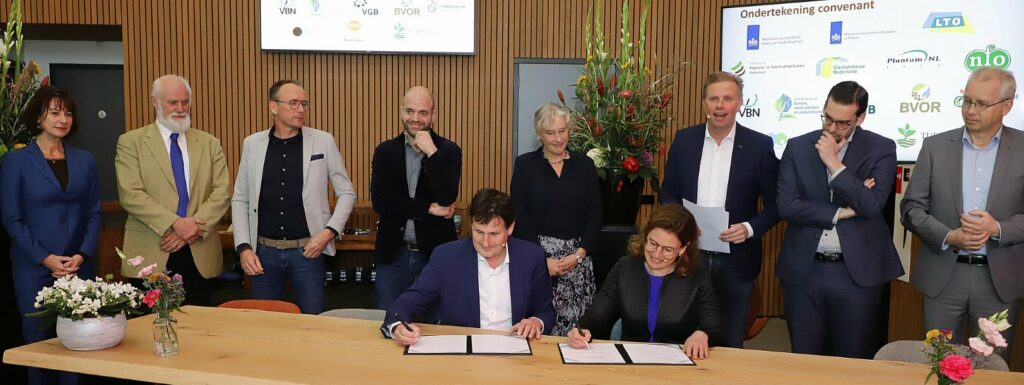Less environmental impact
Netherlands agrees roadmap for the substrate of the future
The Netherlands has reached a landmark covenant on the future of the substrate industry. Representatives of the government and all major associations and stakeholders in environmental and climate protection, the horticultural and substrate industries, as well as RHP and RPP agreed on a three-step plan up to 2050, with the aim of improving the “impact of growing media and potting soils on the environment and climate”.
By 2025, producers will increase the proportion of renewable raw materials in growing media to 35% and in potting soils to 60%. In parallel, the use of green compost will rise to 600,000 m³ industry-wide. From 2025, only RPP-certified peat raw materials may be used. Which further targets are realistic for the second stage up to 2030 will be clarified from next year onwards on the basis of a study looking at the actual availability of alternative constituents for Dutch substrate production. A prerequisite for the acceptance of a new raw material is that its environmental and climate impact is better than that of peat. By 2050, Dutch substrate producers want to become climate neutral and produce at least 90% of their products from renewable raw materials.
For Klasmann-Deilmann Benelux, Managing Director Ted Vollebregt, as chairman of the Dutch Potting Soil and Substrate Association, took part in the negotiations and signing. “What makes this agreement special is that it is not limited to a reduction in peat use or aimed at a complete phase-out. Instead, it very clearly addresses the real concern of the Europe-wide discourses in horticulture, namely that growing media should become more environmental and climate friendly. But this is a concern that all sectors of the global economy are rightly tackling and that, of course, the substrate industry is also following.“
Moritz Böcking, Managing Director of the Klasmann-Deilmann Group, says: “Germany can learn a lot from the Netherlands on this point. Our neighbors have reached a workable compromise involving all parties. The targets now set are realistic, they relate to climate and environmental protection, and they safeguard the substrate sector and commercial horticulture. Unlike in Germany, ideologically driven developments were avoided. Instead, the Netherlands has relied on dialogue, pragmatism and compromise and won on all sides.“
Image Souce: Vereniging Potgrond- en Substraatfabrikanten Nederland
